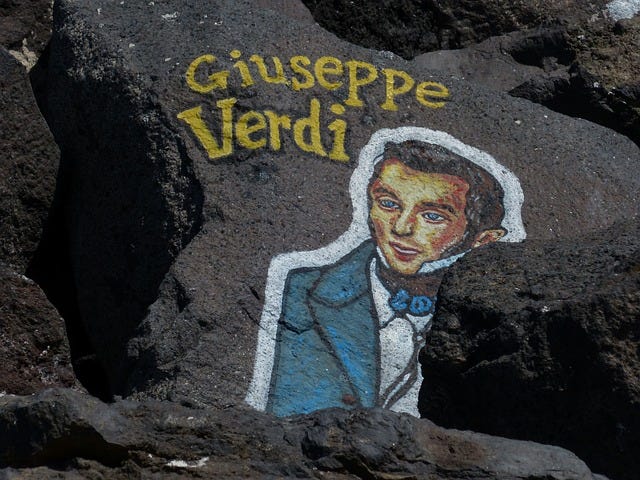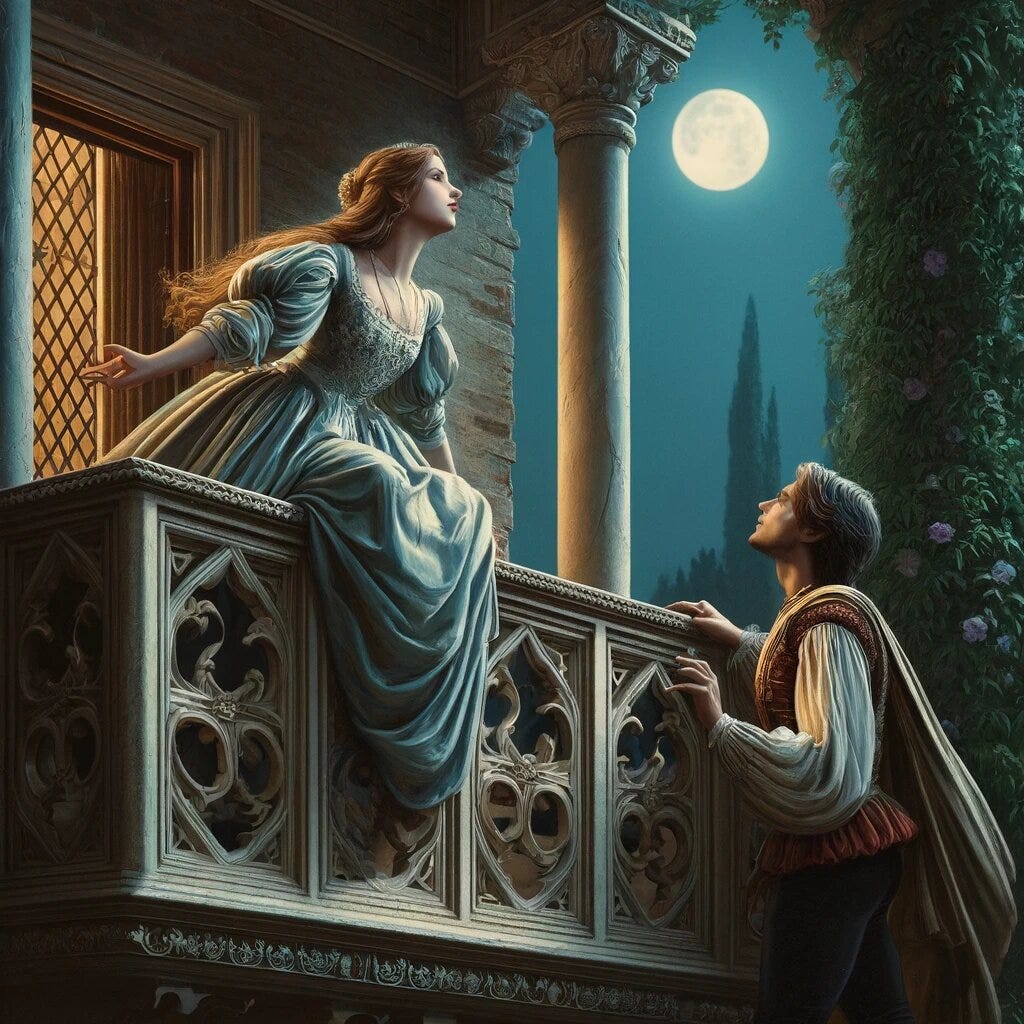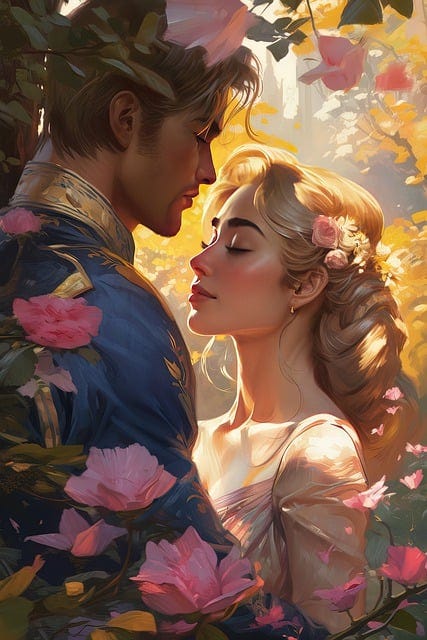Romantic Love
Lord Alfred Tennyson wrote the line, “‘Tis better to have loved and lost than never to have loved at all.”
I often grieve the loss of my wife, Pat. We were married for 50 years, and we had a passionate relationship. By passionate, I mean intense in every sense of the word. We ardently loved each other, and we ardently argued. I can report that during my many years working in mental health, the clients who complained of a lack of sex in their relationships also never argued. When people are married, inevitably, they will sometimes argue and, I hope, frequently make love. But, as Robert Frost elegantly writes in his poem, "Nothing Gold Can Stay."
Nothing Gold Can Stay
By Robert Frost
"Nature’s first green is gold,
Her hardest hue to hold.
Her early leaf’s a flower;
But only so an hour.
Then leaf subsides to leaf.
So Eden sank to grief,
So dawn goes down to day.
Nothing gold can stay."
Romantic love is one of the most profound and impactful forms of human connection. At its core, romantic love is an intense emotional and physical attraction between two people. It is often characterized by feelings of passion, desire, intimacy, and a deep sense of affection and care for the other person.
Romantic love has been the subject of art, literature, music, and philosophy throughout human history. From ancient myths and epic love stories like Romeo and Juliet to modern love songs, the pursuit and experience of romantic love captures the human imagination like few other subjects. The intoxicating feeling of falling in love and having those feelings reciprocated is something that most humans crave and find exhilarating and life-affirming.
But romantic love is more than just a drug-like high. At its best, it also promotes a deep emotional and spiritual connection between partners. Romantic love fosters intimacy, trust, acceptance, and security as two people progressively intertwine their lives and open up to each other emotionally and physically. Love creates a safe space for vulnerability and a special, cherished bond. As romantic love matures over time, it can provide a profound sense of companionship, understanding, and unconditional support between partners.
Love and loss are often intertwined because the intense emotional connection and vulnerability required for love inevitably open us up to the potential for deep hurt and grief.
When we love someone romantically, we invest ourselves emotionally and make them a crucial part of our lives, hopes, and sense of meaning and happiness. We build our world around them to some extent. The more deeply we attach to and depend on a romantic partner, the more we have to lose if the relationship ends.
Breakups, divorces, and the death of a partner are some of the most traumatic losses a person can face because romantic partners play such a central role in our lives. Losing love can feel like losing a part of oneself. The grief can be overwhelming, not only because we miss the person but also because we have to deal with the secondary losses of the future we envisioned together, the routines and experiences we shared, the support they provided, and our identity within the relationship.
Additionally, the intimacy of romantic love can make us feel exposed and unsafe when it ends. If we open up to someone fully and then they leave or betray us, it's a tremendous blow to our ability to trust and be vulnerable. Past losses make us gun-shy about risking our hearts again.
Some key reasons romantic love so often comes with loss are:
1) Relationships are risky, and most ultimately end because of breakup, divorce, or death. Very few relationships last a lifetime, so loss is common.
2) The more deeply we love and attach, the more painful it is to lose that connection. We can't have one without risking the other.
3) Losing a romantic partner often means losing our lifestyle, home, routines, and part of our identity. It's disruptive on many levels.
4) Being vulnerable and seeing the relationship as central to our well-being can lead to feeling devastated if we lose it.
5) We live in an uncertain world. We can never fully control another person or be guaranteed permanence, so loss is always a possibility, even in happy relationships.
So love and loss often go together because investing ourselves fully in a romantic relationship inherently involves the major risk of having it taken away. The only way to avoid the losses would be to never deeply love at all. For most, the benefits and joys of love are worth this difficult downside. The potential for loss is the price of admission we pay for the profound connections and happiness of romantic love. Courage, resilience, and self-love help us weather the losses when they come.
Despite these difficulties, romantic love remains one of the most beautiful and worthwhile parts of the human experience. Opening one's heart to love is an act of courage and optimism. Loving and being loved in return fulfills the human needs for affection, connection, belonging, and being seen and appreciated for who we really are.
The sense of joy, meaning, and complete acceptance found in true romantic love is unparalleled. Even when love doesn't last forever, it still shapes us and adds priceless experiences and memories to our lives. The potential for pain is worth it for the beauty, growth, and unparalleled joys of sharing romantic love with another person.
Love Songs:
There are countless great romantic love songs across various genres and decades. Here are a few popular and timeless examples:
These songs represent just a small sample of the vast array of romantic love songs that have captured the hearts of listeners over the years. I encourage you to listen to and enjoy these wonderful songs:
Billy Joel, "Just the Way You Are"
Eric Clapton, "Wonderful Tonight"
Diana Ross and Lionel Richie, "Endless Love"
Celine Dion, "My Heart Will Go On"
Whitney Houston, "I Will Always Love You"
And, to end this essay on a humorous note:
"Sex without love is a meaningless experience, but as far as meaningless experiences go, it’s pretty damn good.” Woody Allen








What happens to the ones that never experience romantic love, true romantic love?